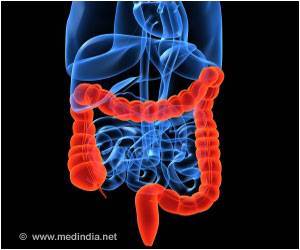It has been noted in various publications that insulin resistance carries a host of health risks: aside from type 2 diabetes, there is cardiovascular disease. Also high insulin levels are associated with growth hormone like substances in the body. These substances are contributing to the development of some cancers.
There is other extensive medical literature stating that glucose (=sugar) and refined carbohydrate (cookies, cakes, French fries, doughnuts, bread, rice, potatoes) intake lead to chronic inflammation in blood vessels throughout the body, but also to a weakening of the immune system. This explains why such varied diseases as high blood pressure, hardening of arteries with resulting strokes and heart attacks, diabetes, asthma and cancer are caused by the same chronic inflammation that in turn is brought on by our eating habits of a refined diet consumed by most industrialized nations. This blog deals only with cancer of the colon and cancer of the rectum as a result of chronic inflammation.
Researchers from Minnesota and Maryland examined 375 individuals with recurrent polyps (=adenomas) and the identical number without recurrent adenomas. They followed the course of the patients for 4 years. In their study they looked at fasting serum. Patients who were found to have the highest levels of both insulin and glucose in their serum were at an approximately 50% higher risk of colorectal cancer recurrence. The strongest risk factors were elevated glucose levels.
The individuals with the highest glucose levels also tended to be slightly older, have a higher waist to hip ratio and a higher body mass index. These results do point out the necessity of keeping a close tab on glycemic control in person with a history of colorectal polyps. It also is evident that consuming foods with a low to medium glycemic index will help to reduce the risk for colonic cancers.
More information about:
1. Colon cancer: http://nethealthbook.com/cancer-overview/colon-cancer/
2. Sugar causes cancer: https://www.askdrray.com/sugar-as-a-cause-of-cancer/
Reference: The Medical Post, April 1, 2008, page 21
Last edited November 3, 2014






